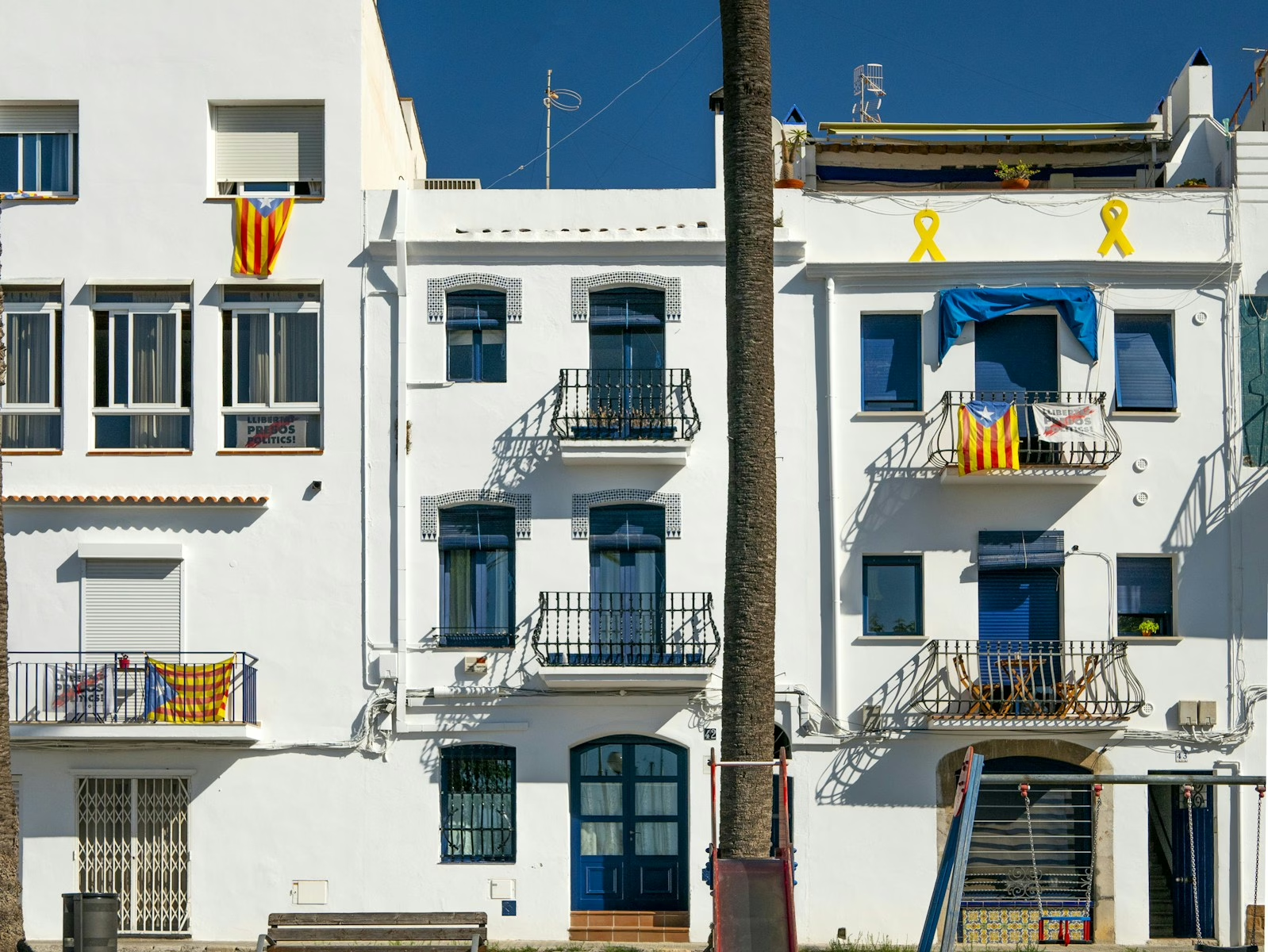Contents
Spain, with its sunny climate, vibrant culture, rich cuisine and beautiful beaches, has long been a magnet for property buyers from all over the world. For expats looking for property, buying in Spain is an attractive option for a holiday home as well as an investment or permanent relocation. Although the process can seem complicated, especially when carried out remotely, Spanish legislation is straightforward and the system is well developed. This article will take you through the basic steps and tips for successfully buying a property in Spain from abroad.
Why is Spain attractive for buying a property?
- Climate: more than 300 days of sunshine a year in many regions.
- Quality of life: affordable cost of living, excellent food, rich culture and traditions.
- Developed infrastructure: modern cities, excellent road networks and airports.
- Tourism: strong tourist flow provides potential for rental income.
- From apartments in city centres and modern beach villas to rustic properties in the mountains.
- Opportunities for Golden Visa: For investors who purchase a property worth more than €500,000, Spain offers the opportunity to obtain a Golden Visa, which gives the right of residence.
Legal framework for foreigners buying property in Spain
Spanish law does not impose restrictions on foreign nationals in terms of nationality when purchasing property. Whether you are an EU citizen (such as a Bulgarian) or a non-EU citizen, you are entitled to acquire real estate.
Basic steps for buying a property in Spain from abroad
The process is well regulated but requires the assistance of several key professionals.
1. Getting your NIE number (Número de Identificación de Extranjero)
- Why it’s important: This is your identification number for foreigners in Spain and is absolutely mandatory for all legal, tax and financial transactions, including buying property, opening a bank account, signing utility contracts and paying taxes.
- How to get it: you can get it in person at a police station in Spain (Oficina de Extranjeros) or through the Spanish embassy/consulate in your country. The easiest way when you are abroad is to authorize a lawyer or gestor (administrative consultant) to obtain it on your behalf.
2. Opening a Spanish bank account
- Why it’s important: It’s needed to make payments on the purchase of the property, pay taxes, fees and utilities.
- Requirements: Usually an NIE number, passport, proof of address registration and proof of income are required. Some banks offer services for non-residents.
3. Hiring professionals
To ensure a smooth and secure transaction, it is imperative that you work with:
- Lawyer (Abogado):
- Role: Your lawyer is key. He or she will carry out a thorough legal due diligence of the property – checking the title at the Property Registry (Registro de la Propiedad) for encumbrances, mortgages, liens, litigation. It will check that the property is legally built and that it has all the necessary permits (including a building permit and a certificate of habitability – Cédula de Habitabilidad). He will review all contracts and advise you of your rights and obligations. He can also represent you with power of attorney.
- Mandatory: Hiring an independent lawyer is highly recommended, especially when buying a property remotely.
- Notario:
- Role: The notary is the official who draws up and certifies the official deed of sale (Escritura Pública de Compraventa). He ensures the legality of the transfer of property, calculates and collects the taxes, and registers the final deed in the Property Registry. The notary does not represent either party, but acts as a neutral public official.
- Mandatory: the participation of a notary is mandatory.
- Estate Agent (Agente Inmobiliario):
- Role: You will help find property, arrange viewings and negotiate. Choose a licensed and experienced agent who understands the property needs of expats.
- Gestor:
- Role: This is an administrative consultant who can help you with bureaucratic tasks such as getting an NIE, opening a bank account, registering for utilities and filing tax returns.
4. Purchase process:
- Reservation Contract (Contrato de Reserva):
- First step, where a small reservation deposit (€3,000 – €10,000) is paid to take the property off the market.
- Preliminary Contract / Private Contract of Sale (Contrato de Arras / Contrato Privado de Compraventa):
- After your attorney does an initial background check, this contract is signed. It is binding and describes the terms of the transaction. A larger deposit is paid (usually 10% of the purchase price, less the reservation deposit).
- Final Deed of Purchase (Escritura Pública de Compraventa):
- Signed before a notary public. At this point, ownership is transferred, final payment is made and all fees and taxes are paid. The notary submits the deed for registration in the Land Registry.
Buying a property remotely (from abroad)
If you cannot be present in person at every stage of the process, you can purchase a property remotely by giving a notarised power of attorney (poder notarial) to your lawyer or other trusted person.
- Power of attorney: must be issued by a Spanish notary or a notary in your country, with an apostille and an official translation into Spanish. It gives the authorized person the right to act on your behalf (signing contracts, opening bank accounts, paying fees, etc.).
- Virtual tours: many agencies offer virtual tours and video tours. However, it is always advisable to visit the property in person before making a final decision if possible.
Costs and fees when buying a property in Spain
In addition to the purchase price, you should anticipate the following additional costs, which typically amount to around 8% to 15% of the purchase price, depending on the region and property type:
- Transfer taxes:
- For second-hand properties (Transfer Tax / ITP – Impuesto de Transmisiones Patrimoniales): varies between 6% and 10% of the purchase price, depending on the autonomous community (region).
- For new construction (VAT / IVA – Impuesto sobre el Valor Añadido): 10% VAT on the purchase price, plus the Documentary Deeds Tax (AJD – Actos Jurídicos Documentados), which is between 0.75% and 1.5%, depending on the region.
- Notary fees: about 0.2% – 0.5% of the purchase price (minimum fee of about €300).
- Fees for registration in the Property Registry (Registro de la Propiedad): about 0.1% – 0.25% of the purchase price (minimum fee of about €100).
- Lawyer’s fee: usually 1% of the purchase price (plus VAT).
- Estate agent commission: usually 3% – 5% of the purchase price (plus VAT) but this can vary and is often paid by the seller, although practices vary.
- Gestor fees (optional): For administrative services.
- Mortgage costs (if applicable): mortgage origination fees, property valuation fee, notary and registration fees related to the mortgage.
Important tips:
- Budget extra: always allow a 10-15% buffer for all fees and expenses.
- Check all documents: don’t sign anything until your lawyer has reviewed all the documents and you understand them fully (with a licensed translator if necessary).
- Current Expenses: inquire about annual property taxes (IBI), municipal fees, condominium fees and utilities.
Buying property in Spain as a foreigner is affordable and relatively straightforward, especially for EU citizens. With proper preparation, understanding of the process and the support of qualified local professionals – a lawyer, notary and estate agent – your real estate investment in Spain can be successfully realised. Your dream of owning your own place under the Spanish sun is entirely feasible, even from a distance.
You might also like:
- Dubai’s Property Market in 2025: Population, Millionaires, and the Future of Supply
- Corfu Property: 2025 Investor’s Guide to the Pearl of the Ionian Sea
- Fires in Greece: what is the risk to your property and how to protect yourself?
This post is also available in: Български







